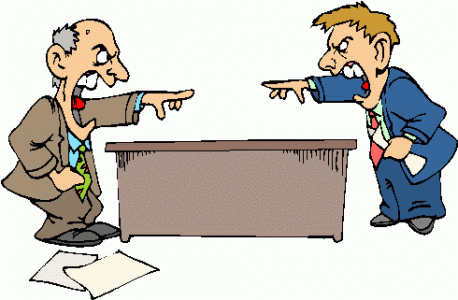Responding responsibly
It was a usual Monday morning in the office. One of my colleagues walked to his chair rather grumpy. After a routine good morning, I asked him when he returned from his parent’s house. He had told me that he would spend the weekend with them. But my casual question somehow made him angry. He replied heatedly that it was none of my business and stormed out of the office.
I sat there with my mouth wide open. I didn’t know what I had done wrong. I was just trying to make a casual conversation. Later I tried to apologize and strike up a conversation, but he won’t yield. It made me much more disturbed.
My hurt turned to resentment towards the guy and I rehearsed in my mind all the things that I would say to him on the next encounter. I made plans to intimidate him like he did to me but felt more and more discomfort as I did so.
Tearing down the mask
We have all had similar experiences. We have felt ridiculed, intimidated or outright violated in many circumstances. The problem becomes more critical as we live that situation again and again in our heads. We imagine how we would respond the next time around, making us more uncomfortable.
These kinds of situations happen to everyone. But how we respond to it proves who we really are. Adverse situations are the best test to bring out our real faces behind the mask of politeness. It proves the mettle of a person.
Many situations are actual prompts whose response makes the person great.
A Lawyer’s Story
An Indian lawyer was traveling through South Africa on a train in first class. The racist ticket checker asked him rather harshly to move to the second class even though he had a first-class ticket. The young lawyer protested and refused to move. The checker with the help of a policeman dragged him out of the coach and threw him and his stuff on the next station platform.
What would you do in such a situation? If I were in his place, I would physically resist at first. If such violence doesn’t work I may even earn to return to my homeland or choose to bear the humiliation and the pain throughout my life. It might reflect on my attitude towards a white guy in the future.
But the lawyer chose a different path. He understood racism as a disease and decided to fight against the root cause throughout his life through non-violent methods. It was the birth of one of the greatest revolutionaries in the planet. The lawyer was M K Gandhi and the situation gave him direction in his life.
Responding Creatively
It is worthy to note that Gandhi responded creatively to the situation while a layman would have responded violently. It is our natural response to a hostile situation. But the humane way is to respond after reflecting and analyzing the situation.
Feeling indignant, our egoistic mind will try to reciprocate the feeling. But we have to ask ourselves whether that is what we need. Resisting violence and hatred with the same lowly emotions will only create more unrest.
A better approach would be to correct the other individual if he is wrong or correct ourselves if the mistake is ours. Such an open-minded approach will bring peace to ourselves and to society.
Changing Perception
Fr Abel, C M I – a Capuchin priest, philanthropist, and poet from India – was regularly ridiculed by children and pelted with stones when he walked through the streets. This went on for several years. One of them met the priest decades later. He was full of remorse for what he did as a child and asked for forgiveness. Fr Abel smiled serenely and said, “Actually I should be thanking you. There is a custom in our faction to suffer ridicule. Mostly, people are paid to mock the new priests to test their patience. You guys saved my money and did it for free!”
It is our perception that makes the situation positive or negative. When we set our ego aside and perceive the situation, we may see things in a different light.
We have to understand that most find a vent to their pent up anger through some others. Occasionally you and I have the rare honor of diffusing their violence by becoming their ‘shout buddies’. If we can consider them empathetically, we will feel compassionate towards them.
Responding in Love
May be my colleague had a rough weekend at his parent’s house. Or he was unable to go because of some unexpected situations and was angry about it. My query thus may have been an untimely one. He was just expressing his frustration. It was my mistake that I took it personally.
Humans are internally tormented species whose life oscillates from regret to resentment. Many a time our responses would be inappropriate. But it would be totally wrong to judge ourselves or others because of these unfortunate incidents.
Can’t we forgive each other of our follies and live together in love?
Thank you for reading. Please post your valuable opinions in the comment box below.

Crucial message we all need to be reminded of, Miriam. Love it what it’s all about! 🙂 Thanks.
Thank you for your valuable comment. Your support means a lot to me. Hope you are well.